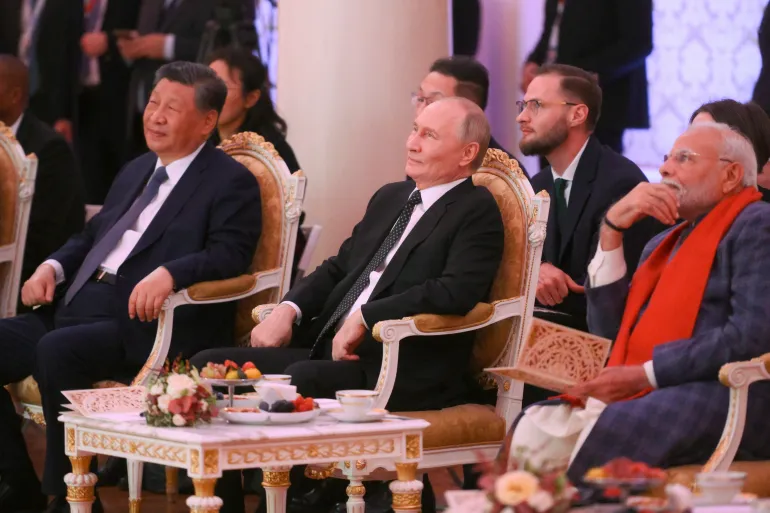Russian Foreign Minister Sergey Lavrov has recently advocated for the revival of the Russia-India-China (RIC) trilateral dialogue mechanism, emphasizing its potential to foster strategic collaboration among the three nations. This call comes at a time when Moscow perceives increasing discord between NATO and Russia, while also delving into the India Pakistan clash.
Speaking at a Eurasian security conference on Thursday, Lavrov emphasized Russia’s “genuine interest” in reviving the RIC trilateral dialogue, citing recent de-escalation along the India-China border as a timely opportunity.
“Now that, as I understand it, an understanding is being reached between India and China on how to calm the border situation, I believe the time has come to revive the RIC trio,” he stated.
Lavrov has expressed concerns that NATO’s expanding influence in the Indo-Pacific region is exacerbating tensions between India and China. He accused the alliance of making overtures to India that could complicate its relations with Beijing. Lavrov pointed out that NATO’s 2022 Madrid Summit declared a global commitment, including the Indo-Pacific, which he views as an attempt to impose a security framework that may not align with India’s interests.
The RIC Trio
Established on the initiative of former Russian Prime Minister Yevgeny Primakov, the RIC format has facilitated over 20 ministerial-level meetings since its inception. These discussions have encompassed a broad spectrum of issues, including foreign policy, economic cooperation, and regional security. Lavrov highlighted that the recent de-escalation of border tensions between India and China presents an opportune moment to reinvigorate this trilateral platform.
The prospect of reviving the RIC format has elicited varied responses from Western nations. NATO has expressed concern over China’s deepening relationship with Russia, accusing Beijing of becoming a “decisive enabler” of Russia’s actions in Ukraine through their so-called “no limits” partnership. Leaders of the 32-member North Atlantic Treaty Organization stated that the deepening strategic partnership between Russia and China, along with their attempts to undercut and reshape the rules-based international order, is a cause for profound concern.
They called on China to cease all material and political support to Russia’s efforts, including the transfer of dual-use materials and equipment that serve as inputs for Russia’s defense sector.
Furthermore, former NATO Secretary General Anders Fogh Rasmussen has suggested that India should reconsider its strategic partnership with Russia and align more closely with Western nations in their approach to global security. This proposal has been met with criticism from Russian officials, who argue that such suggestions aim to undermine India’s strategic relationships and its longstanding ties with Russia.
India’s Position and Strategic Considerations
India has maintained that its participation in the Quad alliance is primarily for trade and regional stability, rather than military alignment. However, Lavrov noted that some Quad members are pushing for deeper military cooperation, which could strain India’s delicate balancing act between its partnerships with Western nations and its historical ties with Russia.
The RIC format offers a platform for India and China to engage in dialogue with Russia’s facilitation, potentially easing bilateral tensions. Lavrov emphasized that Russia’s role is to support peaceful coexistence among these major Asian powers, countering external influences that may seek to divide them.
As global geopolitical dynamics shift, the revival of the RIC troika could serve as a stabilizing force in Asia, promoting dialogue and cooperation among India, China, and Russia. If these issues are ironed out, together Putin, Xi and Modi form a dominating group, one that has the economic and military might to take on just about anyone.








